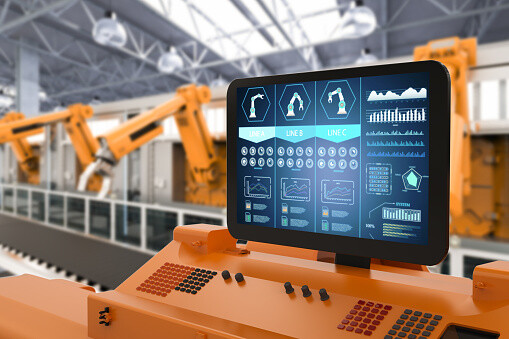By John Conway, President of UniversalAutomation.Org
In today’s industry climate, opportunities for innovation and creativity are drastically hindered by restrictive manufacturing equipment.
Industrial engineers should be enabled by their equipment to create value, drive efficiencies, achieve sustainable growth, and bring forward green initiatives across industry. Equipment that hinders this is simply obsolete. With up to 50% of industrial engineers wasting valuable time by wrestling with this issue, change has never been more imminent. 

Industries require open technological frameworks, encouraging fluidity, change, and innovation. Technology must empower teams, encouraging smarter, faster, and more sustainable manufacturing, bringing on a new era for industrial processes. Universal automation – interoperable, software-centric automation systems that share a common IEC 61499 runtime – is the solution.
The importance of industrial collaboration
Change is inevitable and a part of life. The last few years have made that abundantly clear. While nobody can predict the future, emerging technologies based on the principles of interoperability and universal automation allow us to react to volatile markets and deal quickly and efficiently with any changes in production environments. Moreover, they reduce waste by expanding the lifespan of hardware and improving circularity.
According to both the ARC Advisory Group and McKinsey & Company, industry is yet to uncover key efficiencies estimated at between $30bn and $100bn per year. However, this will only be possible if industry is digitally transformed and embraces collaboration.
Some may suggest that breakthroughs in machine learning, augmented reality, IIOT, and real-time analytics have made promising advances in manufacturing, meeting the demands of our current digital world.
However, in reality, industry remains trapped by vendor lock-in, which limits machine-to-machine collaboration and the ability to integrate these best-of-breed technologies.
The key to a greener future
These incompatibilities hinder industry from breakthrough innovations and cutting-edge products and solutions, like becoming pioneers of a net-zero future through low impact and carbon-neutral manufacturing. As the global economy strives towards a greener future, industry runs the risk of holding the planet back.
Currently, industry is responsible for a staggering 32% of global carbon emissions. If the status quo were to be maintained, industry won’t be able to transition to sustainable models.
Universal automation enables engineers to create and innovate, realising their full potential to re-shape the industry and move us forward into a sustainable Industry 4.0. We must ensure that ecology and technological advancement are compatible, nurturing innovation as industry becomes one of the cornerstones of a green recovery. This and more will be possible through universal automation, breaking the industry mould.
Industrial collaboration is imperative. Only then can top engineering talent be revealed, bringing a new purpose to industry.
Universal automation as the new standard
Standardisation is the answer to innovation. The existing IEC 61499 standard already provides a basis for integration and collaboration. Standardisation and the separation of hardware and software lifecycles have proved essential in the development and success of the IT industry. It has become second nature today for computers and smartphones to run real-time software applications.
Universal automation makes this process available for industrial processes and machines for the first time. The ability to easily port applications from one hardware brand to another will free up engineering time, giving automation professionals greater scope for innovation. It will also help to make industrial operations more cost and energy-efficient, extending the lifespan of the hardware.
Opening the gate to innovation
Universal automation technology is already making major strides for the rapidly advancing consumer-packaged goods, pharmaceutical, and logistics industrial sectors among notable companies like gr3n and Master Systèmes.
As the software is not limited by the hardware, adapting to change has never been easier or more cost-effective. If something were to go wrong, universal automation applications can be used to troubleshoot and find the root of the issue four times faster, meaning a reduction of wasted materials in faulty products and reduced unplanned downtime.
To those still sceptical of universal automation, don’t be! The standardisation of screw threads back in the day completely revolutionised and democratised the landscape for manufacturing. It meant that machines could be made and repaired using standardized screwdrivers, making this one of the first moves towards industrial standardisation. Imagine what we could achieve by standardising platforms on which the industrial automation software solutions run in our factories today?
About UniversalAutomation.Org
UniversalAutomation.Org is a non-profit association managing the reference implementation of an industrial automation and shared source runtime.
To learn more, visit: https://universalautomation.org/


